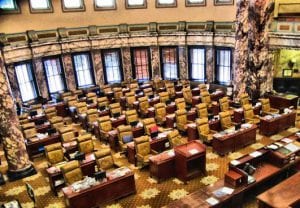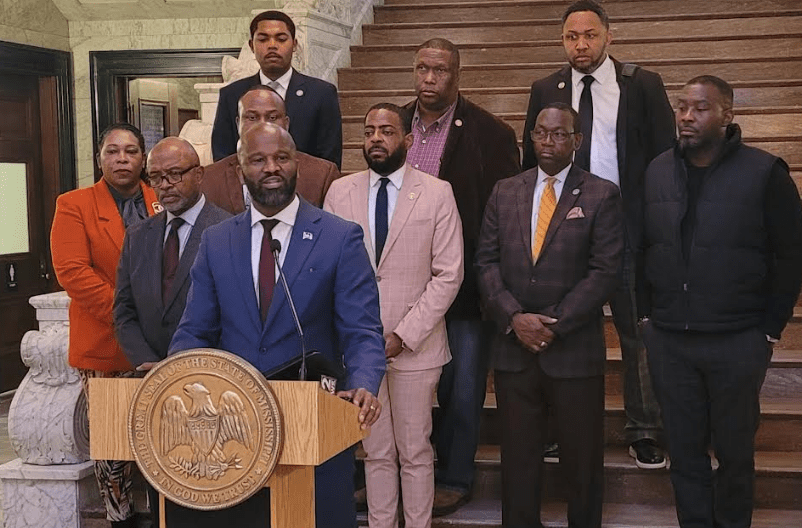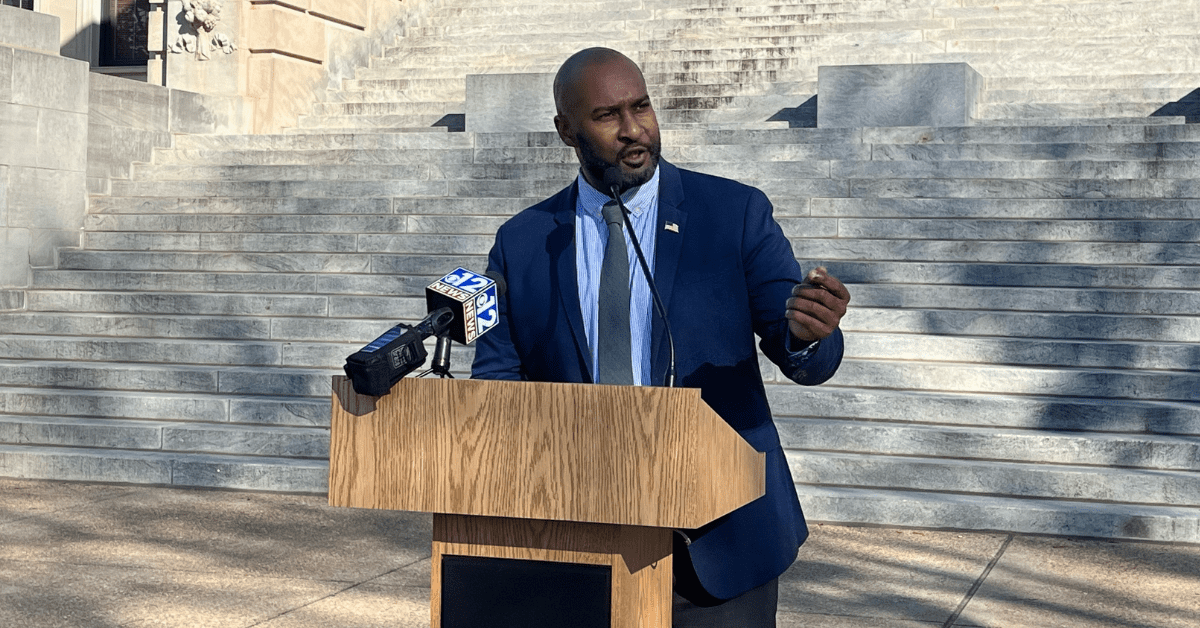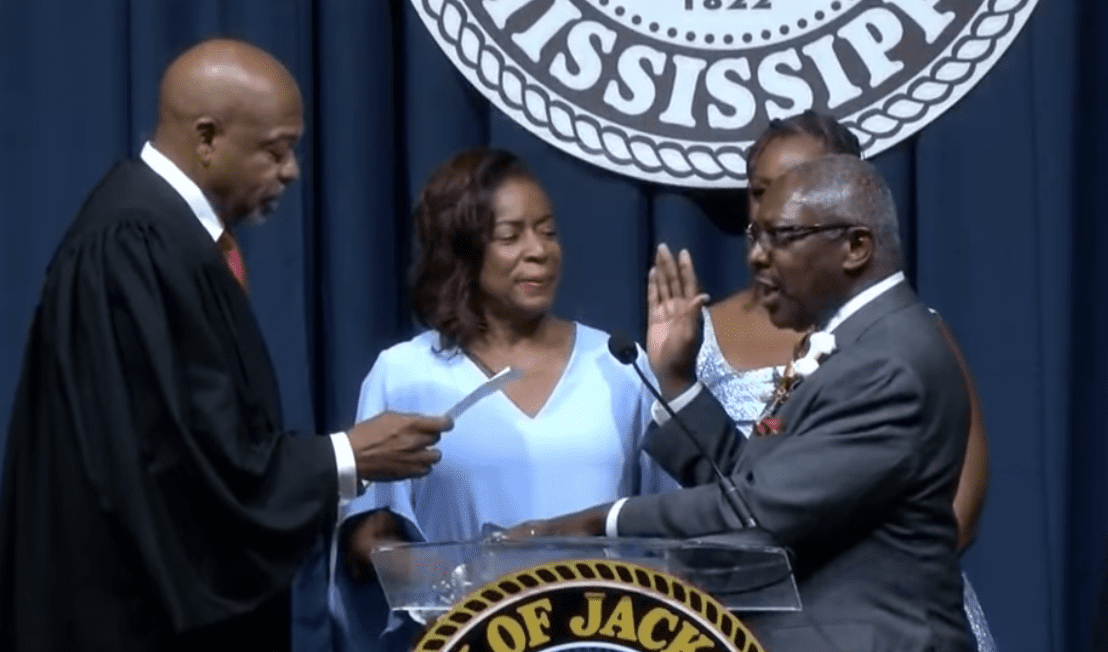
The Education Scholarship Account program will expire on June 30, 2020 without legislative action to extend it.
Currently, ESA students come from 86 school districts across the state and attend over 100 private schools in 56 counties, online, and just across state lines in Tennessee and Alabama. The ESA program, reviewed every 3 years by the legislative PEER committee, has a high satisfaction rate of 91% compared to 24% in students’ previous public school setting.
ESA students have autism, developmental delays, emotional disturbances, hearing impairments, intellectual disabilities, speech-language impairments, multiple disabilities, orthopedic impairments, specific learning disabilities, traumatic brain disorders, visual impairments, and other health impairments.
Parents primarily use ESA funds for private tuition, but also use funds for therapy, tutoring, specialized equipment, and other qualified expenses.
Ashley Wells’ daughter, Jalyn, attends a small Christian school in Biloxi. If the program is not reupped in a similar manner as its original passage in 2015, she would be eliminated from the program.
“The assistance of a special education tutor outside of the classroom along with curriculum used at home have helped our daughter tremendously over the last four years,” Wells said. “We are calling on the legislature to protect the program and give us back the choices that have helped Jalyn.”
Three bills to extend the program have been introduced, including SB 2594 (10-year extension), HB 1272 (5-year extension), and HB 1263 (3-year extension).
SB 2594, authored by Senate Education Chairman Dennis DeBar, is expected to be taken up by the Senate Education Committee this week.
The bill makes changes to the program, such as narrowing the window of student eligibility, adding a testing requirement, and reducing the types of qualified expenses. Most significantly, it would greatly reduce the number of schools ESA students may attend.
As written, the bill requires private schools to follow federal special education laws and regulations, including students’ Individualized Education Program (IEP) received through their public school, and to provide services to all students with disabilities without utilizing any services through the district under the federal Individuals with Disabilities Education Act (IDEA), which calculates and provides federal funding for services for children with disabilities in and outside of public schools.
The restrictive language in the bill may mean that no schools would be eligible.
Many private schools utilize whatever services, typically quite limited, may be provided through the district with a “proportionate share” of federal funding under IDEA, and private schools are not bound by federal special education law or the IEP process mandated in public schools.
Even if all state accredited, special purpose schools and private schools with special purpose programs were eligible, approximately 70% of schools used by ESA students today would no longer be eligible to serve students. This would mean hundreds of families would be left without an educational alternative in their area, as most are unable to afford private options and are in rural areas or failing districts.
“There are not special schools in our area that would be allowed under this bill,” said Ginger Morrow of Pope, Mississippi. Her son attends a small private school in the Mississippi Delta.
“We would have to give up our ESA, and I don’t understand why my son should be punished in that way,” Morrow said. “He needs the small classrooms and the one-on-one attention. I don’t know what we will do for our son Landon without the ESA. This is not right.”
The bill also deletes the provision allowing students to attend schools out-of-state when their parents verify in writing that they cannot find what their child needs within 30 miles of their home.
In addition, the bill would require any school serving ESA students to administer assessments at the beginning and the end of the year and report individual scores to the state department of education. Though how this would work out in practice is unclear, the bill does say schools may use their own assessments, state-approved screeners, or a national norm-referenced test.
Since this would be a new requirement for private schools, requiring them to report student data to a state agency in a format more typical of public schools, private schools could decide not to comply, reducing the number of school options further.
The majority of private schools serving ESA students serve fewer than ten students.
Parents have concerns about how this requirement could play out because testing is not a simple requirement for their children and they don’t believe it’s the best indicator of their child’s success.
In speaking with parents in Ridgeland and Madison, this change would not provide a fair assessment of their students’ development.
“It takes my child as much as four times longer to take any test,” said Allison Talley of Ridgeland. “ Testing our children is not the same as testing typical children and is not a fair representation of their progress. Testing for JoEllen is difficult because of her vision, hearing, and developmental delay.”
“Standardized assessments are not a true indicator of what my child knows or the progress she has made in a school year,” Sarah Nasif of Madison said. “There would be little value and added stress.”
The ESA is valued at $6,765 in 2019-20. The amount fluctuates up and down along with base student cost.











